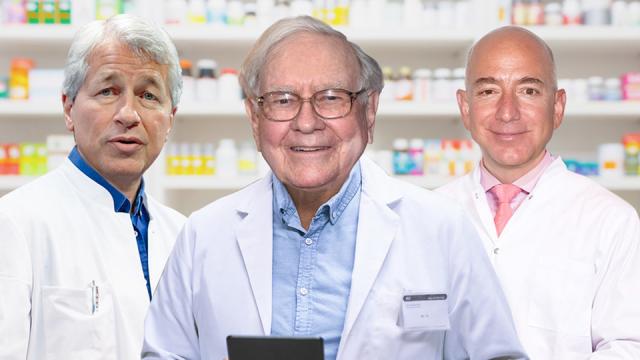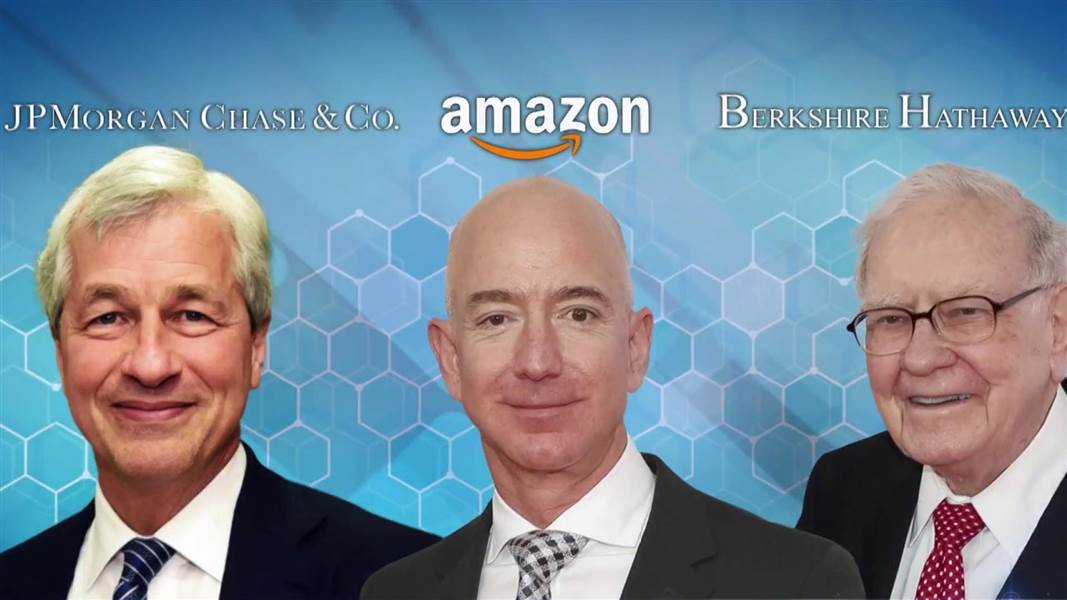
Three paragons of capitalist success have just made one of the strongest arguments yet in favor of single-payer healthcare. On Monday, Amazon, Berkshire Hathaway and JPMorgan Chase announced plans to form an independent healthcare company for their 1.2 million employees. Without details, it’s hard to say what its prospects are, but note the stipulation that it would be “free from profit-making incentives and constraints.”
That phrase gets at a root problem of American healthcare, namely the conflict between the profit goals of insurers and the public-health goals of everyone else. It can’t be repeated often enough that for-profit insurance is not the solution to the problem of the uninsured. It isthe problem.
The moment you place third-party payers between consumer and product, you have a perverse incentive to deny coverage to the people who most need it, and to deny claims by those who are insured. Insurers maximize profit to the extent that they can avoid the people who most need what they’re selling. Try and think of another industry that operates this way.
It’s this conundrum that explains why we have Medicare (insurance for people 65 and older), Medicaid (for low-income people) and Obamacare (for people who can’t get group insurance or are excluded from the market because poor health makes them unprofitable to cover).
The stock market’s reaction to Monday’s announcement is revealing. Pharmacy and health-insurance stocks fell sharply on Tuesday, partly out of fear that the new entity could serve as a model for a type of large private insurer that has the leverage needed to bargain down prices charged by providers – hospitals, drugs firms and the like. The last thing providers want is a third-party payer powerful enough to do that. That’s one reason for the perennial opposition to single-payer healthcare.
It’s not clear that the new company will succeed, but the fact that healthcare stocks quake at the mere prospect says something about the industry. They don’t see the initiative as innovation; they see it as an attack.
Of course, even a successful venture might not disrupt the healthcare industry the way Amazon has disrupted retailing. Assuming it garners the market power necessary to lower costs, the competitive advantage the three firms would reap is one they might prefer to keep for themselves. To have a broader social impact they might have to share the model, which, as healthcare economist Craig Garthwaite told the New York Times, “would not be good for long-term shareholder value for their firms.”
That, of course, would demonstrate yet another way in which the profit motive impedes universal coverage. There’s a reason other advanced countries don’t leave healthcare to the whims of the market.
But wait, if private companies are showing the way forward on healthcare, doesn’t that suggest that we don’t need government in the market and that we can leave it to private players?
Well, no. No matter how successful the new venture or any copycats, there is still the issue of the self-employed and others who don’t have access to a group plan outside the Obamacare exchanges that free market disciples would abolish tomorrow if they could. There is also the problem of portability: An employer might offer a great plan, but what if you leave the company? The U.S.’s employment-centered healthcare system makes that difficult.
Even if the new company is aborted, we have here the spectacle of three capitalist behemoths acknowledging that for-profit healthcare is unacceptable if the goal is to broaden coverage and improve care. Next time someone lectures you about the virtues of market-driven healthcare, refer them to those Marxist radicals Jeff Bezos, Warren Buffett and Jamie Dimon.
3 WAYS TO SHOW YOUR SUPPORT
- Log in to post comments












